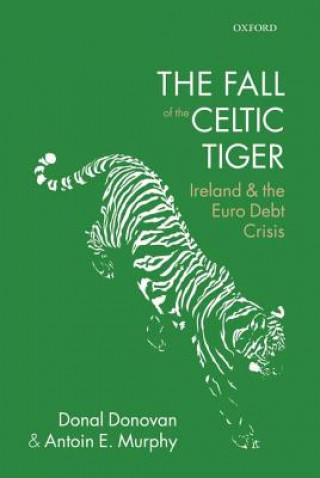
Kód: 02616841
Fall of the Celtic Tiger
Autor Donal Donovan
By 2000, Ireland had achieved a remarkable macroeconomic performance producing 10% economic growth, a budget surplus, and a very low debt to GDP ratio. Emigration had disappeared and there was significant immigration from Eastern ... celý popis
- Jazyk:
 Angličtina
Angličtina - Väzba: Brožovaná
- Počet strán: 352
Nakladateľ: Oxford University Press, 2014
- Viac informácií o knihe

Mohlo by sa vám tiež páčiť
-

Celtic Tiger in Collapse
70.76 € -

Atlas of World History
43.76 € -18 % -

Inside the Celtic Tiger
36.60 € -10 % -

Rise and Fall of Ireland's Celtic Tiger
39.46 € -
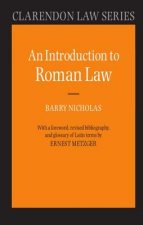
Introduction to Roman Law
66.15 € -

Theatre and Globalization: Irish Drama in the Celtic Tiger Era
70.76 € -

How Brands Grow
36.60 € -

Concise Oxford English Dictionary
25.45 € -19 % -

Economy of Ireland
10.73 € -

Form, Affect and Debt in Post-Celtic Tiger Irish Fiction
166.17 € -

The Dream Thieves
10.83 € -10 % -

Peter Rabbit: Christmas is Coming
16.56 € -23 % -

Brother's Best Friend
13.28 € -

Editions de Parfums Frederic Malle
84.36 € -

Ocean at the End of the Lane
10.93 € -24 % -

We Are Totally Normal
9.09 € -21 % -

Normal People
24.64 € -4 % -

Crypto Profit: Your Expert Guide to Financial Freedom through Cryptocurrency Investing
12.77 € -

Godzilla
34.66 € -3 % -

Noise
18.09 € -15 % -

Lapvona
16.05 € -23 % -

Nickelodeon Blue's Clues & You!: Play & Sing with Blue! Sound Book
22.90 € -2 % -

Five Nights at Freddy's: Tales from the Pizzaplex
11.95 € -3 % -

Lore Olympus: Volume Three
18.91 € -9 % -

Renoir. 40th Ed.
25.86 € -

Book of Night
14.51 € -23 % -

Bengal Tiger, Celtic Tiger
166.78 € -

Bee
10.22 € -13 % -

Willpower
12.26 € -23 % -

Steampunk Lego
29.44 € -5 % -

Little Children's Activity Book mazes, puzzles and colouring
7.97 € -22 % -

Pantone: 35 Inspirational Color Palettes
17.89 € -

HBR 20-Minute Manager Boxed Set (10 Books) (HBR 20-Minute Manager Series)
90.39 € -18 % -

The Secret History
10.11 € -22 % -

Age of Surveillance Capitalism
31.79 € -19 % -

Dune Messiah
10.01 € -31 % -

Burning Bright: A comedy about money, fame and the Celtic Tiger
20.65 € -

Magical Tarot of the Golden Dawn
41.30 € -19 % -

Glute Lab
54.39 € -10 % -

New Nordic Houses
39.26 € -10 % -

La sustracción internacional de menores: el retorno del menor en el ámbito del C
13.80 € -5 % -

Intermedialität im Werk von Gregory Crewdson
35.17 €
Darčekový poukaz: Radosť zaručená
- Darujte poukaz v ľubovoľnej hodnote, a my sa postaráme o zvyšok.
- Poukaz sa vzťahuje na všetky produkty v našej ponuke.
- Elektronický poukaz si vytlačíte z e-mailu a môžete ho ihneď darovať.
- Platnosť poukazu je 12 mesiacov od dátumu vystavenia.
Viac informácií o knihe Fall of the Celtic Tiger
Nákupom získate 152 bodov
 Anotácia knihy
Anotácia knihy
By 2000, Ireland had achieved a remarkable macroeconomic performance producing 10% economic growth, a budget surplus, and a very low debt to GDP ratio. Emigration had disappeared and there was significant immigration from Eastern Europe. By November 2010, economic growth was significantly negative, the budget deficit was out of control and the debt to GDP ratio had risen to over 100%. In an unprecedented development, Ireland was forced to apply for an emergency bail-out package from the Troika (European Commission, European Central Bank, and the International Monetary Fund). This book examines how the Celtic Tiger, a high growth performing economy, fell into a macroeconomic abyss. It is a story that shows how the Irish economy moved from a property market crisis to a banking crisis and fiscal crisis, and how these three crises produced a fourth crisis, the massive financial crisis of 2010. Against the backdrop of the newly created Eurozone, the book demonstrates the way in which a housing boom was transformed into a property market bubble through excessive credit creation. Accompanying the property market bubble buoyant property related taxes enabled a profligate government to over spend and under tax. Few, both in Ireland or Europe, recognised the danger signals because the prevailing economic ideology suggested that financial markets could self-regulate. The book analyses the roles of banks, builders, developers, regulators (the EU, the ECB, the Central Bank of Ireland, and the Irish Financial Regulator), economists, the media, and a property driven populace during the various unfolding stages of the downfall of the Celtic Tiger. It pays particular attention to the decisions to provide a highly controversial comprehensive guarantee for the covered Irish banks and the events that left the government with no alternative but to request a bail out. It considers throughout two questions: who or what was responsible for what happened and in what sense? Could actions have been taken at various stages to prevent the final recourse to the bail out? Finally, the book addresses the future of the Celtic Tiger and discusses the impact of measures to help resolve the current Euro debt crisis as well as the underlying lessons to be learned from this traumatic period in Ireland's economic and financial history.
 Parametre knihy
Parametre knihy
Zaradenie knihy Knihy po anglicky Economics, finance, business & management Economics Macroeconomics
61.25 €
- Celý názov: Fall of the Celtic Tiger
- Autor: Donal Donovan
- Jazyk:
 Angličtina
Angličtina - Väzba: Brožovaná
- Počet strán: 352
- EAN: 9780198719960
- ISBN: 0198719965
- ID: 02616841
- Nakladateľ: Oxford University Press
- Hmotnosť: 512 g
- Rozmery: 233 × 152 × 19 mm
- Dátum vydania: 10. July 2014
Obľúbené z iného súdka
-
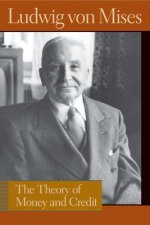
Theory of Money & Credit
16.56 € -

Digital Gold
11.03 € -23 % -

Macroeconomics, Global Edition
89.88 € -1 % -

Cartoon Introduction to Economics Vol 2
16.97 € -20 % -

Euro and the Battle of Ideas
33.23 € -

End of Money
16.45 € -5 % -
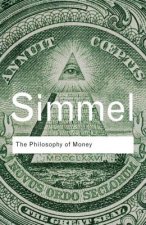
Philosophy of Money
30.36 € -
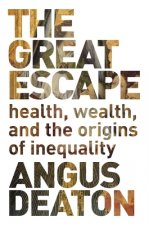
Great Escape
17.48 € -13 % -
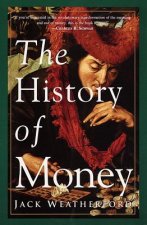
History of Money
12.98 € -21 % -
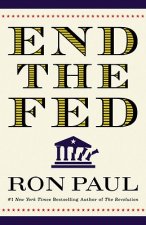
End The Fed
16.56 € -22 % -
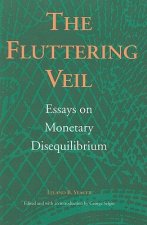
Fluttering Veil
17.78 € -

Advanced Macroeconomics
131.60 € -

History of Money
58.79 € -

Monetary Theory and the Trade Cycle
17.99 € -

Golden Fetters
79.65 € -

Business Cycles
14.72 € -6 % -
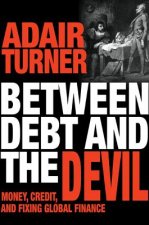
Between Debt and the Devil
18.60 € -8 % -

Business Cycles
17.07 € -

Evolution or Revolution?
32.51 € -21 % -

Asian Godfathers
14.41 € -23 % -

Manias, Panics, and Crashes
32.61 € -16 % -
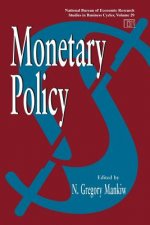
Monetary Policy
47.13 € -

Macroeconomics: Institutions, Instability, and the Financial System
104.50 € -

Good Money
15.33 € -4 % -

Good Money
14.72 € -6 % -

Social Limits to Growth
85.89 € -

Blockchain Revolution
10.93 € -24 % -
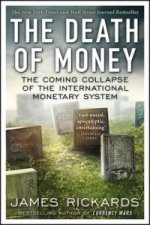
Death of Money
12.26 € -23 % -

When Money Destroys Nations
13.90 € -
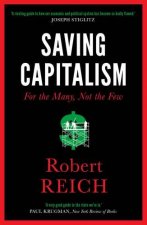
Saving Capitalism
11.14 € -23 % -
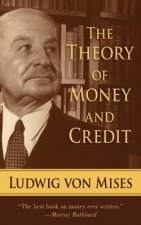
Theory of Money and Credit
11.95 € -17 % -
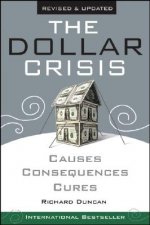
Dollar Crisis, Causes, Consequence, Cures Revised and Updated edition
34.55 € -4 % -
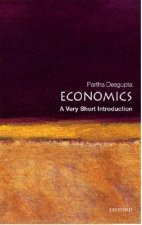
Economics: A Very Short Introduction
10.11 € -23 % -
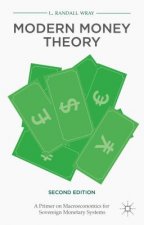
Modern Money Theory
92.23 € -10 % -

Cryptocurrency
12.26 € -23 % -

All About Forex Trading
19.42 € -17 % -

Why Most Things Fail
14.41 € -23 % -
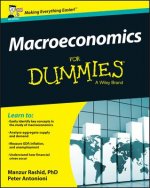
Macroeconomics For Dummies - UK
18.81 € -19 % -
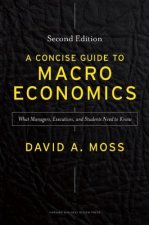
Concise Guide to Macroeconomics, Second Edition
29.54 € -18 % -
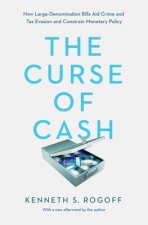
Curse of Cash
19.01 € -2 % -

International Macroeconomics
94.38 € -
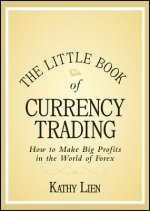
Little Book of Currency Trading
23 € -23 % -

Macroeconomics, Global Edition
83.95 € -4 % -

Contours of the World Economy 1-2030 AD
69.43 € -

Forex Trading Secrets: Trading Strategies for the Forex Market
47.03 € -

How to Build a GPU Mining Rig to Mine Bitcoin, Monero, Ether, Zcash, and other Cryptocurrenices
15.84 € -13 % -

New Paradigm in Macroeconomics
199.81 € -

Before the Industrial Revolution
26.68 € -

Financial Innovations in International Debt Management
70.76 €
Osobný odber Bratislava a 2642 dalších
Copyright ©2008-24 najlacnejsie-knihy.sk Všetky práva vyhradenéSúkromieCookies



 21 miliónov titulov
21 miliónov titulov Vrátenie do mesiaca
Vrátenie do mesiaca 02/210 210 99 (8-15.30h)
02/210 210 99 (8-15.30h)